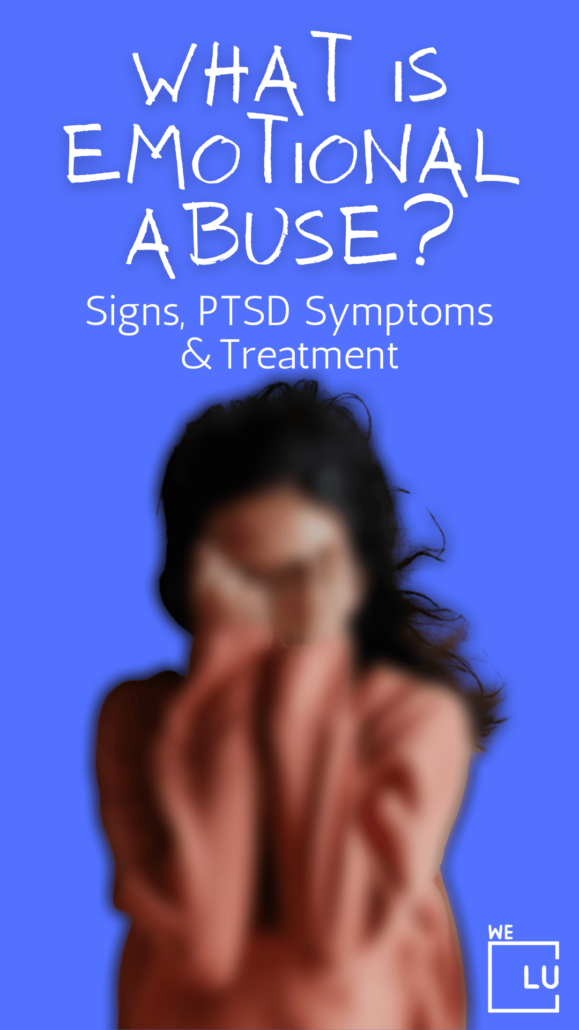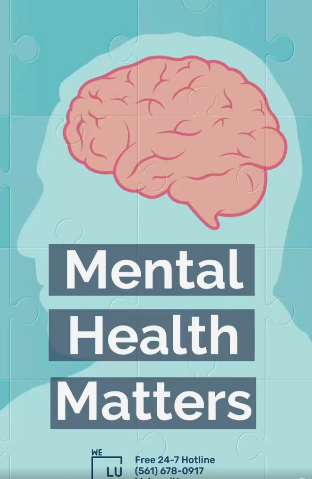What is Emotional Abuse?
Emotional abuse can include psychological, mental, or chronic verbal aggression. Individuals who suffer from emotional abuse tend to have very low self-esteem, develop PTSD, manifest personality changes (such as becoming withdrawn), and may even become anxious, depressed, or suicidal.
Emotional abuse is one of the most complex forms of abuse to recognize. It can be subtle and insidious or manipulative and overt. Either way, it chips away at the victim’s self-esteem, making them doubt their perceptions and reality.
Emotional or mental abuse, while most common in dating and marital relationships, can happen in any relationship, including among family members, friends, and co-workers.
One definition of emotional abuse is any act including isolation, confinement, verbal assault, intimidation, humiliation, infantilization, or any other treatment which may reduce the sense of dignity, identity, and self-worth.

A relationship is emotionally abusive when a consistent pattern of harsh words and bullying behaviors wears down an individual’s self-esteem and undermines their mental health.
According to the National Center for Biotechnology Information (NCBI) [1], Younger men reported experiencing higher levels of emotional abuse, which declined with age. Older females reported experiencing less emotional abuse than older males. Overall, emotional abuse was more common in younger people. Younger women experienced higher rates of isolation, and women’s overall experience of property damage was higher than that of men and increased with age.

Skip To:
- What is Emotional Abuse?
- Relationship Between Emotional Abuse and Addiction
- Emotional Abuse and PTSD Statistics
- Complex PTSD From Emotional Abuse Facts Sheet
- Signs and Examples of Emotional Abuse
- The Cycle of Emotional Abuse
- How To Break Emotional Abuse Cycle?
- Can You Get PTSD From Emotional Abuse?
- PTSD Signs From Emotional Abuse
- Types of Emotional Abuse
- Tips in Coping with Emotional Abuse
- Top 5 Most Emotional Abuse Frequently Asked Questions
Learn More:
Relationship Between Emotional Abuse and Addiction
Emotional abuse and substance abuse have a close and complicated relationship, with emotional abuse making substance abuse more likely and substance abuse making emotional abuse more likely.
Getting out of an emotionally abusive relationship isn’t easy, and when you add substance abuse or drug addiction into the mix, it becomes more complex. Often, family and friends have difficulty understanding why those involved endure emotionally abusive relationships and stay trapped in a life bound by addiction.
Unfortunately, emotional abuse is frequently a contributor to substance abuse. For example, an emotionally abusive partner may manipulate their partner into staying with them by aiding in and enabling their drug addiction.
According to the Substance Abuse and Mental Health Service Administration (SAMHSA) [2], in 2018, an estimated 47.6 million adults in the U.S. had any mental illness in the past year, representing 19.1 percent of the adult population. Evidence-based prevention can prevent substance misuse and the development of substance use and mental disorders, such as PTSD, resulting from emotional abuse.
Emotional Abuse and PTSD Statistics
Childhood maltreatment is widespread globally and has been linked with an increased risk of various adult psychiatric disorders, including posttraumatic stress disorder (PTSD). As a severe mental disorder that involves exposure to actual or threatening death events, serious injury, or sexual violence, PTSD profoundly impairs cognitive and behavioral functioning.
34 Years
For emotional abuse in the US, prevalence rates were high, averaging around 80%.
Source: NCBI
43%
40% of women and 32% of men reported expressive aggression, and 41% of women and 43% of men reported coercive control.
Source: NCBI
12 Million
About 12 million adults in the U.S. have PTSD during a given year.
Source: NCBI
Complex PTSD From Emotional Abuse
Facts Sheet
Considering that the concept of trauma encompasses different traumatic experiences not previously considered traumas but that are also harmful, future reformulations of the definition of traumatic events could contemplate emotional abuse.
Any abuse’s emotional and psychological trauma can cause long-term effects, including PTSD (post-traumatic stress disorder), in the form of complex PTSD (C-PTSD).
By understanding how unspoken memories of emotional abuse episodes impact future emotional regulation capacity, we might prevent the harmful effects of this abuse on intergenerational attachment styles, which can lead to societal problems such as parental violence, marital violence, and mental health disorders.
Accordingly, improving intervention strategies for memory reconsolidation and reprocessing those events could immensely impact society.
Recovering from complex PTSD takes time. For some people, the condition may pose lifelong challenges. However, research shows that prolonged trauma-focused treatment can help significantly decrease symptoms.
One goal of treatment is to attempt to develop or recapture feelings of trust in others and the world. This can take time, but participating in healthy relationships is a positive step.
People can manage or reduce their symptoms and improve their overall wellness with the right therapy, medication, and lifestyle changes.
Signs of Complex PTSD
- Difficulty controlling your emotions
- Feeling very angry or distrustful of the world
- Constant feelings of emptiness or hopelessness
- Feeling as if you are permanently damaged or worthless.
- Feeling as if you are entirely different from other people
- Feeling like nobody can understand what happened to you.
- Avoiding friendships and relationships or finding them very difficult
- Often experiencing dissociative symptoms such as depersonalization or derealisation
- Physical symptoms such as headaches, dizziness, chest pains, stomach ache
- Regular suicidal feelings.

Get Your Life Back
Find Hope & Recovery. Get Safe Comfortable Detox, Addiction Rehab & Mental Health Dual Diagnosis High-Quality Care at the We Level Up Treatment Centers Network.
Hotline (877) 378-4154Signs and Examples of Emotional Abuse
Emotional abuse centers around control, manipulation, isolation, and demeaning or threatening behavior. Signs of emotional abuse include the following:
Control
- Your partner may seem overly invested in your social life or guard your day-to-day routines without acknowledging your desires. You don’t have the freedom to make your own decisions (either subtly or overtly). Even small comments that weaken your independence are a means of control. Examples are:
- Making demands or orders and expecting them to be fulfilled
- Making all decisions, even canceling another’s plans without asking
- Continually monitoring another person’s whereabouts
- Insisting on regular calls, texts, or pictures detailing where the person is, and even showing up to these places to make sure they are not lying
- Exerting financial control over the other, such as by keeping accounts in their name or only giving the other person an allowance
Yelling
- It’s pretty typical for partners to raise their voices now and then, but it’s not normal when disagreements always escalate into shouting. It’s especially concerning if you feel afraid. Not only does yelling make a productive conversation nearly impossible, but it also creates an imbalance of power—only the loudest person is heard. Examples are:
- Yelling, which is frequently a scare tactic and can be a way for an abusive person to let the other know who is in control
Contempt
- When one person feels contempt for the other, it’s not easy for either individual to express their feelings. In healthy relationships, there’s an expectation that your partner will be respectful and listen (even if they can’t give you what you need). However, contempt may create a wall in your relationship if they respond to your needs with mean-spirited sarcasm, disgust, arrogance, or apathy.
- Treating the person as though they are a child, including telling them what to eat, what to wear, or where they can go.
- The abusive person may lecture about the other person’s behavior to clarify that the other person is inferior.
Contempt
- When one person feels contempt for the other, it’s not easy for either individual to express their feelings. In healthy relationships, there’s an expectation that your partner will be respectful and listen (even if they can’t give you what you need). However, contempt may create a wall in your relationship if they respond to your needs with mean-spirited sarcasm, disgust, arrogance, or apathy.
- Treating the person as though they are a child, including telling them what to eat, what to wear, or where they can go.
- The abusive person may lecture about the other person’s behavior to clarify that the other person is inferior.

What are Examples of Emotional Abuse from Partners?
The types of emotional abuse by partners and parents include humiliating or constantly criticizing a child. Emotionally abusive parents threaten, shout or call their children names, poke fun, or use sarcasm to harm a child. Additional signs of emotional abuse from parents include blaming, scapegoating & making the child perform dehumanizing acts.
Examples of emotional abuse from partners include your partner constantly using degrading names, insulting, and criticizing you. Your partner may be highly jealous & possessive, and both humiliate or shame you while isolating you from family, friends & your community.
Other examples of emotional abuse from partners include threats to hurt you or themselves, your children, or your family with weapons. Threats can expand to take your children away via child protective services (CPS). Calls you “crazy,” “too sensitive,” or denies abuse is happening when confronted with constant lies about where they are, what they’re doing, or who they’re with.
Further examples of emotional abuse from partners include cheating or flirting with others to intentionally hurt you while accusing you of cheating in the relationship.
Blocking you from making new friends or joining social groups. Ignores your company for hours, days, or weeks. Refuses to listen, speak or respond to you, giving you the silent treatment. Explodes in anger toward you and is frequently angry at everything you do.
When emotional abuse is present in a relationship, you likely will feel off-balance, like you’re stepping on eggshells, and even question your judgment. This is because an abusive partner uses harmful behaviors like these destructive tactics to manipulate and control their partner, so they are in control, and you become powerless.
Excessive Defensiveness
- When you steadily feel like you have to defend yourself, there’s less room for positive communication. So both parties must be able to talk honestly—and openly—with each other to resolve problems. Extreme defensiveness can feel like you’re in a battle where your shield is constantly up.
- Telling you that your opinions, ideas, values, and thoughts are stupid, illogical, or “do not make sense.”
- Talking down to you or being condescending
- Using sarcasm when interacting with you
- Acting like they are always right, know what is best, and are smarter
Threats
- If your partner is bullying or threatening you in any way, you may feel in danger. Such statements can include threats of physical harm or suicide, blackmail, or other intimidating comments. Still, they often share the same intent: To back victims into a corner (and prevent them from leaving).
- Starting arguments for the sake of arguing
- Making confusing and contradictory statements (sometimes called “crazy-making”)
- Having drastic mood changes or sudden emotional outbursts
Stonewalling
- Stonewalling occurs when one partner declines to communicate or talk. If your partner shuts down uncomfortable talks, it can feel like abandonment. On the other hand, their refusal to discuss problems may be rejected or a lack of concern for their emotions.
- Abusive people may leave a situation rather than resolve it. In a disagreement at home, for example, they may remark about how the other is “crazy.” This can put all the blame on the other person and make them feel ashamed while never solving the issue.
Blame
- Victims are often made to believe that they cause and therefore deserve their abuse and unhappiness, completing the cycle of mental abuse much more difficult to break. The shame can exacerbate this that many victims feel for letting their abuse continue.
- Jealousy can be an abuse tactic. The abusive person may regularly confront the other for talking to or “flirting with” other people. They may accuse the other person of cheating on them regularly.
- The abusive person may try to turn the tables on the other person by blaming them for the issues the mean person has not dealt with. They may even accuse the other person of being the abusive one in the relationship.
- The abusive person typically knows how to get the other one angry. They may irritate them until the person becomes upset and then blame them for getting upset.
Gaslighting
- A form of emotional manipulation, gaslighting causes victims to question their judgment, memories, and sanity. If you find that your concerns (and even memories) are frequently dismissed as false, stupid, or crazy, you may be experiencing gaslighting.
- Accusing you of being “too sensitive,” “too emotional,” or “crazy.”
- Suggesting that your perceptions are wrong or that you cannot be trusted by saying things like “you’re blowing this out of proportion” or “you exaggerate.”
- Accusing you of being selfish, needy, or materialistic if you express your wants or needs (the expectation is that you should not have any wants or needs)
Isolation
- Emotional abuse is pervasive, affecting all areas of life. Most prominently is its toll on victims’ relationships with friends and family. Abusers often convince their partners that no one cares. This alienation can cause victims to feel like they’re on an island, removed from loved ones and past versions of themselves.
- Controlling who you see or spend time with, including friends and family
- Monitoring you digitally, including text messages, social media, and email
- Taking or hiding your car keys
- Treating you like possession or property
Volatility
- If a relationship is continually interrupted by mood swings, it can indicate abuse. Many individuals experience natural ups and downs, but it’s a dilemma when it harms one’s partner. Volatile abusers often shower their victims with affection and gifts after an outburst, only to become angry again soon after.
- Giving excessive gifts with the implication that these gifts may disappear at any time or as a reminder of what they would lose if they left the relationship
- Acting two-faced, such as being charming in public but completely changing the minute they get home
First-class Facilities & Amenities
World-class High-Quality Addiction & Mental Health Rehabilitation Treatment
Rehab Centers TourRenowned Addiction Centers. Serene Private Facilities. Inpatient rehab programs vary.
Addiction Helpline (877) 378-4154Proven recovery success experience, backed by a Team w/ History of:
15+
Years of Unified Experience
100s
5-Star Reviews Across Our Centers
10K
Recovery Success Stories Across Our Network
- Low Patient to Therapist Ratio
- Onsite Medical Detox Center
- Comprehensive Dual-Diagnosis Treatment
- Complimentary Family & Alumni Programs
- Coaching, Recovery & Personal Development Events
The Cycle of Emotional Abuse
Part of the reason so many victims stay with their abusers is a cycle of emotional abuse. Because of how it works, it’s easy to think these recurring events will finally stop. Here are the four stages of emotional abuse.
Stage 1: Building of Tension
Usually, emotional abusers hurt their victims because they are in a stressful situation. These stressors can make the problem feel tenser. Potential stressors include physical illness, fatigue, trouble at work, or family issues.
The abuser will start showing signs of anger, paranoia, injustice, and powerlessness in response to these stressors. The victims may find themselves feeling guarded and anxious. They are afraid that abuse is about to happen, whether it’s physical. or emotional

Stage 2: Abuse Incident
The second step of the cycle of abuse is the abuse incident itself. This can include sexual or physical violence, emotional manipulation, attempts to control the victim’s behavior, name-calling or insults, or threats of property destruction or harm.
Stage 3: Reconciliation
After the abuse has happened, you will both enter the reconciliation phase. Usually, you enter a honeymoon period brought on by your abuser, giving you gifts, loving gestures, and kindness to move past the abuse.
Because your brain usually releases dopamine and oxytocin when this occurs, you’re likely to want to stay. You’ll feel more bonded and like your relationship will work out.
Stage 4: Calm
To move forward after the abuse, both parties must explain why it happened. Unfortunately, the abusive partner will likely apologize to minimize your perception of their responsibility for what happened.
Some of the ways they might establish this period of calm are:
- Using outside factors as a reason for their behavior
- Apologizing but blaming others at the same time
- Denying or minimizing the abuse itself
- Saying it’s your fault because you provoked them
Once this period of calm starts, it’s natural to pretend that the abuse was an exception. Sometimes, you might not even think it happened, especially if you’re being emotionally manipulated to believe it didn’t. You might even have been used to thinking it’s your fault, in which case you can’t blame the abuser for it. Unfortunately, in abusive conditions, this calm doesn’t last forever. Once more external stressors emerge, they can set off your partner again.
How To Break Emotional Abuse Cycle?
Emotional abuse victims have been through traumatic and confusing experiences. Some people continue to encounter abuse frequently due to situations that are tough to navigate. The nature of abuse preys on these unfortunate circumstances, which results in a never-ending cycle of emotional abuse that breeds more abuse. One must also escape that downward, self-repeating spiral to escape an unhealthy relationship. But that’s much easier said than done. Here are five practical ways to break the cycle of emotional abuse.
Recommending the best approach or defense to break the emotional abuse cycle is complex. There is no easy solution, especially when the partner has destructive or aggressive inclinations (such as temper tantrums or destroying property) or violent tendencies. Here are some tips on how to break the emotional abuse cycle.
Understand the emotional abuse cycle for what it is
- Emotional assault is frequently undetectable. Because of this, it’s so simple to ignore, brush aside, or further downplay. You must be able to spot when the cycle is occurring to end it.
Think about how the cycle of emotional abuse impacts you
- Understanding the effects of emotional abuse can open your eyes to new possibilities for ending the pattern. After all, it’s simple for survivors to deny their suffering, leading you to believe that it wasn’t that horrible occasionally. However, research indicates that physical abuse’s repercussions are just as profound.
Prioritize yourself as you break the cycle of emotional abuse
- It would be best to prioritize your needs to break out from an abusive pattern. Following emotional abuse that has injured you, making this change can be brutal. Most likely, your abuser made you feel terrible forever, wanting to put yourself first. You might have always put them ahead of you because they thought any other behavior was selfish.
When attempting to break free from the cycle of emotional abuse, seek support
- It can be incredibly isolating to face abuse. As was already established, those who abuse others emotionally frequently isolate their victims. To better manage their victims, they do this. These abusers know that if you informed your loved ones what happened, they would support you. As a result, they isolate you from the people who are important to you and give you negative notions about them.
Change how you interact with the abuser
- Your process of ending the cycle should ideally involve keeping a distance from the abuser. Sadly, that ideal circumstance doesn’t always exist. It would be best if you communicated with them occasionally. Sometimes the abuser will continue to bother you after you leave. There’s even a chance that you won’t be able to leave the space that you share with the abuser just yet.
PTSD from Emotional Abuse
Emotional abuse doesn’t always lead to post-traumatic stress disorder (PTSD). However, it can. Women who suffered emotional abuse were more likely to drink alcohol versus women who were not abused. Emotional abuse causes trauma which can lead to destructive tendencies. PTSD can develop after a shocking or frightening event. Your doctor (psychologist and psychiatrist) may make a PTSD diagnosis if you experience high stress or fear over a long period. These emotions or feelings are usually so severe that they interfere with your daily functioning [4].
What are signs of PTSD from emotional abuse?
5 Signs of Emotional Abuse
- They are hyper-critical or judgmental toward you
- They ignore boundaries or invade your privacy
- They are possessive and controlling
- They are manipulative
- They often dismiss you and your feelings
Can You Get PTSD From Emotional Abuse?
PTSD can develop from emotional abuse. This is because emotional abuse is often not a single event but a recurring cycle of behavior. PTSD from emotional abuse often does not follow the standard process but instead falls into the “complex PTSD,” or PTSD that stems from multiple traumatic instances rather than just one.
PTSD from emotional abuse often requires far more thorough treatment, as the person is not working to recover from a single event but from what can be a lifetime of emotional abuse PTSD. Each mental abuse trauma a person has endured must be processed and healed from, so recovery can not only require an extensive period of therapy but can require you to create solid and firm boundaries regarding your relationships with family, as a family is often the source of emotional abuse.
Many individuals close to you and your partner will be unable to see the emotional abuse and may not understand your perspective. Compounding trauma is not impossible to recover from but does demand a lot of introspection, rewiring, and healing. For this reason, if possible, individuals are encouraged to remove themselves from the source of the emotional abuse during treatment, to make sure harmful thought patterns and experiences do not hinder the healing process.

Can you have PTSD from emotional abuse? FAQs
-
What are the causes of emotional abuse?
Relationship problems, family arguments, money problems or unemployment, mental health issues, poverty, addiction to drugs or alcohol, and domestic abuse.
-
Can verbal abuse cause PTSD?
Verbal abuse falls under the category of violence. Verbal abuse involves one person humiliating and assaulting another individual verbally. PTSD from verbal abuse is complicated. However, it exists. Verbal abuse can cause PTSD. Verbal abuse PTSD exists.
Emotional abuse can lead to C-PTSD, a type of PTSD that involves ongoing trauma. C-PTSD shows many of the same symptoms as PTSD, although its symptoms and causes can differ. PTSD emotional abuse treatment should be tailored to the situation to address the ongoing trauma the person experienced from emotional abuse.
-
What is emotional abuse CPTSD?
CPTSD from emotional abuse. Complex Post Traumatic Stress Disorder (C-PTSD) is a condition that results from chronic or long-term exposure to emotional trauma over which a victim has little or no control and from which it is little or no hope of escape, such as in cases of domestic emotional, physical or sexual abuse childhood emotional, physical or sexual abuse.
-
What are the mental abuse PTSD symptoms?
PTSD is always due to a traumatic event. It is a severe condition, and an official diagnosis of psychological trauma can be debilitating for the people it affects. You can also develop mental abuse PTSD symptoms from emotional and mental abuse. Because abuse is often not a single event but a recurring cycle of behavior, PTSD from mental abuse can be tough to deal with without professional help.
-
What are the types of mental abuse?
The nature of mental abuse can vary across different types of relationships. Intimate partner abuse and child abuse are among the most common.
PTSD Signs From Emotional Abuse
PTSD can develop after a frightening or shocking event. Your psychiatrist may make a PTSD diagnosis if you experience high stress or fear over a long period. These feelings are usually so severe that they interfere with your daily functioning. PTSD from emotional abuse symptoms may include flashbacks, nightmares, severe anxiety, and uncontrollable thoughts about the event.
Other signs and symptoms of PTSD may include:
- Insomnia
- Angry outbursts
- Being easily startled
- Negative thoughts
- Nightmares
- Reliving the trauma (flashbacks) and experiencing physical symptoms such as a rapid heartbeat
You may be more likely to develop PTSD if you have the following:
- Been through traumatic events before, especially in your childhood
- A history of mental illness or substance use
- No support system
PTSD is often treated with therapy and antidepressants.
Effects of Emotional Abuse
Staying in a verbally or emotionally abusive relationship can have long-lasting effects on your mental and physical well-being, leading to depression, chronic pain, or anxiety [3].
You may also:
- Feel powerless and hopeless
- Question your memory of events: “Did that happen?”
- Change your behavior for fear of upsetting your partner or act more aggressively or passively than you would be otherwise.
- Feel ashamed or guilty
- Feel unwanted
- Feel constantly afraid of upsetting your partner
- Feel manipulated, used, and controlled.
Your partner’s behavior may leave you feeling like you need to do anything possible to restore peace and end the abuse. This can feel overwhelming and stressful.
Types of Emotional Abuse
Emotional abuse can involve any of the following:
Verbal abuse – Yelling, insulting, or swearing at you.
Rejection – Constantly rejecting your thoughts, ideas, and opinions.
Gaslighting – Making you doubt your feelings, thoughts, and sanity by manipulating the truth. Can gaslighting cause PTSD? Gaslighting may lead a person to develop mental health concerns. The constant self-doubt and confusion can contribute to anxiety. A person’s hopelessness and low self-esteem may lead to depression.
Put-downs – Calling you names or telling you that you’re stupid, publicly embarrassing you, blaming you for everything. Public humiliation is also a form of social abuse.
Causing fear – Making you feel afraid, intimidated, or threatened.
Isolation – Limiting your freedom of movement, stopping you from contacting other people (such as friends or family). It may also prevent you from doing what you usually do – social activities, sports, school, or work. Isolating someone overlaps with social abuse.
Financial abuse – Financial abuse is another form of domestic violence.
Bullying and intimidation – Purposely and repeatedly saying or doing things intended to hurt you.
World-class, Accredited, 5-Star Reviewed, Effective Addiction & Mental Health Programs. Complete Behavioral Health Inpatient Rehab, Detox plus Co-occuring Disorders Therapy.
CALL (877) 378-4154End the Addiction Pain. End the Emotional Rollercoaster. Get Your Life Back. Start Drug, Alcohol & Dual Diagnosis Mental Health Treatment Now. Get Free No-obligation Guidance by Substance Abuse Specialists Who Understand Addiction & Mental Health Recovery & Know How to Help.
Tips For Coping with Emotional Abuse
Emotional abuse doesn’t have to go unchallenged, and coping with it is more than just learning to “live with it.” Emotional abusers are just like bullies on the playground; their abuse can be handled just like bullies.
Use these techniques when coping with emotional abuse:
1. Understand the abuser
While it can seem counterintuitive to have compassion for the abuser, sometimes changing how you view the abuser can give you insight into coping with the abuse. Often abusers are anxious, insecure, or depressed, and remembering that may help you to keep the abuse in its proper context – the abuse isn’t about you, it’s about them.
2. Stand up to the abuser
Emotional abusers don’t like being challenged and may back down if you question their abusive tactics.
3. Find positive ways to interact with the abuser
If you can neutrally handle the abuser, you may be able to see the positive in the abuser and find new ways to interact with him or her that are positive. This is mainly seen in workplace environments.
4. Change the subject or use humor to distract from the situation
5. Never support acts of emotional abuse of others
Emotional Abuse and Addiction Treatment
Abusive relationships are often more damaging and complex than some people realize. Mental and emotional abuse leaves no visible scars of pain but can have lasting effects on the victim. Therefore, it is essential to seek help to overcome abuse; if illicit substances are part of the equation, treatment can help address the present addiction.
People who have abused prescription or illicit substances or have taken on drinking to lessen the effects of emotional abuse are more vulnerable to dysfunction. Finding a therapist while being treated for substance use can build effective remedies for recovery. 12-Step groups allow for safe spaces of support and community.
Getting treatment for substance abuse as a coping mechanism doesn’t have to be shameful. Victims of abusers are no weaker or unworthy than those who have not been abused.
Do I Have PTSD From Emotional Abuse Quiz?
Both the “emotional abuse PTSD test” and “PTSD from emotional abuse test” can be assessed by a mental health professional. For physical health problems, this could include labs (like bloodwork), tests (like an x-ray, scan, or biopsy), or a physical exam. For PTSD, an assessment includes answering questions about your thoughts, feelings, and behaviors.
There’s no specific test for determining whether you have CPTSD, but keeping a detailed log of your symptoms can help your doctor make a more accurate diagnosis. Try to keep track of when your symptoms started and any changes in them over time.

Find the Right Treatment Plan at We Level Up, NJ
Treatment and therapy from reputable emotional abuse treatment centers are available to help either or both parties in the abusive situation. We Level Up NJ provides emotional abuse recovery programs and substance abuse treatment for successful healing. If you think that you’re suffering from emotional abuse and you’ve tried to quit alcohol or substance use in the past but ended up using again, that’s a clear sign you need professional help. Make this your opportunity to reclaim your life. Call today to speak with one of our treatment specialists.
Top 5 Most Emotional Abuse Frequently Asked Questions
-
How long does it take to heal from emotional abuse?
It can take time to heal from an emotionally abusive relationship. But you can also use strategies on your own to regain your footing.
-
What are the 5 cycles of emotional abuse?
The five cycles codified—are enmeshment, extreme overprotection and overindulgence, complete neglect, rage, and rejection/abandonment.
-
How to heal from PTSD from emotional abuse?
Psychotherapy, or talk therapy, is used to help a person in recovering from PTSD from emotional abuse by learning about symptoms, identifying triggers, and helping develop skills and strategies to manage symptoms. In addition, psychotherapy may target symptoms directly or help a person manage social, family, or job-related problems.
-
What is the relationship between PTSD and emotional abuse?
PTSD can develop from emotional abuse. This is because emotional abuse is often not a single event but a recurring cycle of behavior. PTSD from emotional abuse often does not follow the standard process but instead falls into the “complex PTSD,” or PTSD that stems from multiple traumatic instances rather than just one.
-
What is mental and emotional abuse?
Mental and Emotional Abuse (also called domestic violence, family violence, domestic emotional abuse, and intimate partner violence) – the deliberate and unethical misuse of power – encompasses various behaviors and situations.
Experience Transformative Recovery at the We Level Up Treatment Center.
See our authentic success stories. Get inspired. Get the help you deserve.



Start a New Life
Begin with a free call to an addiction & behavioral health treatment advisor. Learn more about our dual-diagnosis programs. The We Level Up treatment center network delivers various recovery programs at each treatment facility. Call to learn more.
- Personalized Care
- Caring Accountable Staff
- World-class Amenities
- Licensed & Accredited
- Renowned w/ 5-Star Reviews
We’ll Call You
Search We Level Up NJ Emotional Abuse Mental Health Topics & Resources
Sources
[1] Karakurt G, Silver KE. Emotional abuse in intimate relationships: the role of gender and age. Violence Vict. 2013;28(5):804-21. DOI: 10.1891/0886-6708.vv-d-12-00041. PMID: 24364124; PMCID: PMC3876290.
[2] Prevention of Substance Use and Mental Disorders – SAMHSA/Substance Abuse and Mental Health Services Administration
[3] Emotional and verbal abuse – Office on Women’s Health in the Office of the Assistant Secretary for Health at the U.S. Department of Health and Human Services
[4] Post-Traumatic Stress Disorder – NIMH/National Institute of Mental Health
[5] We Level Up – Trauma Treatment
[6] We Level Up – Trauma and Addiction
[7] We Level Up – PTSD Treatment
[8] Yaribeygi H, Panahi Y, Sahraei H, Johnston TP, Sahebkar A. The impact of stress on body function: A review. EXCLI J. 2017 Jul 21;16:1057-1072. DOI: 10.17179/excli2017-480. PMID: 28900385; PMCID: PMC5579396.
[9] Schneiderman N, Ironson G, Siegel SD. Stress and health: psychological, behavioral, and biological determinants. Annu Rev Clin Psychol. 2005;1:607-28. DOI: 10.1146/annurev.clinpsy.1.102803.144141. PMID: 17716101; PMCID: PMC2568977.
[10] Woody G. The Challenge of Dual Diagnosis. Alcohol Health Res World. 1996;20(2):76-80. PMID: 31798155; PMCID: PMC6876494.





